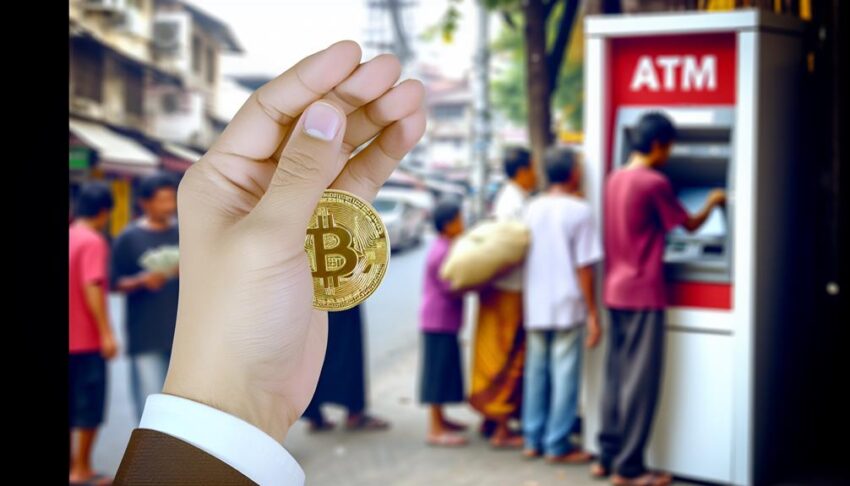If you're considering converting your Monero into cash, you might find the process intriguing yet complex. There are several methods available, from peer-to-peer exchanges that prioritize your anonymity to crypto ATMs that offer convenience but come with potential fees. However, it's essential to navigate this landscape carefully, particularly regarding legal considerations and the reputation of the platforms you choose. What you might not realize is that each option has its trade-offs, and understanding them could greatly impact your experience. What are those trade-offs, and how can you guarantee a smooth transaction?
Understanding Monero Basics
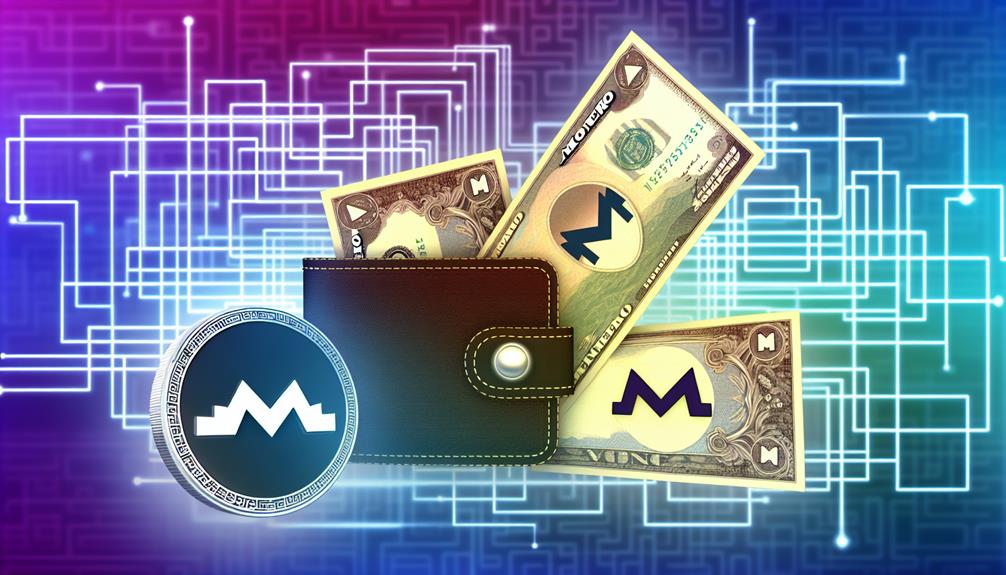
Monero's unique features set it apart in the world of cryptocurrencies, making it vital to grasp its fundamentals. One of the most significant aspects of Monero is its advanced privacy features. Unlike many cryptocurrencies that use transparent blockchains, Monero employs techniques like ring signatures, stealth addresses, and confidential transactions. These technologies guarantee that transaction details—such as sender, recipient, and amount—remain hidden from public scrutiny. As a result, Monero is often favored by users who prioritize privacy and anonymity in their financial activities.
To effectively manage your Monero, understanding the different wallet types is important. Monero wallets generally fall into three categories: software, hardware, and paper wallets. Software wallets, such as the official Monero GUI wallet, offer a user-friendly interface and are ideal for everyday transactions. Hardware wallets, like Ledger and Trezor, provide enhanced security by storing your private keys offline, making them less vulnerable to hacking. Finally, paper wallets allow you to generate and store your Monero keys on a physical medium, guaranteeing maximum security but requiring careful handling.
Methods to Convert Monero
When you're looking to convert Monero into cash, there are a couple of methods you might consider. Peer-to-peer exchanges allow you to trade directly with other users, offering flexibility regarding payment methods. Additionally, the availability of crypto ATMs can provide a convenient option for cashing out your Monero quickly.
Peer-to-Peer Exchanges
Peer-to-peer exchanges offer an effective route for converting Monero into cash, allowing users to trade directly with one another without intermediaries. This method enhances user anonymity and provides a level of privacy that many find appealing. However, it's crucial to contemplate the security measures in place to guarantee a safe transaction. Here are some key factors to keep in mind when using peer-to-peer exchanges:
- Reputation: Choose platforms with strong user reviews and a history of successful trades.
- Escrow Services: Utilize exchanges that provide an escrow service to protect both parties during the transaction.
- Payment Options: Look for platforms that offer various payment methods, such as bank transfers or cash deposits, to suit your needs.
- User Verification: Check if the platform requires any user verification to enhance security, though this may impact anonymity.
Crypto ATMs Availability
Crypto ATMs are increasingly becoming a popular option for converting Monero into cash, providing a convenient and relatively straightforward method for users. These ATMs enhance crypto accessibility, allowing you to exchange your Monero for cash without extensive verification processes typical of traditional exchanges.
To use a crypto ATM, you'll need to locate one that supports Monero transactions, as not all machines are equipped for every cryptocurrency. You can find ATM locations through various online maps or dedicated apps that track crypto ATM installations. Once you've identified a nearby ATM, the process generally involves scanning your wallet's QR code, selecting the amount of Monero to convert, and receiving cash in return after a brief transaction period.
However, it's important to take into account that fees at ATMs can be higher compared to other methods, impacting your overall cash received. Additionally, availability can vary considerably by region, so checking the current status of ATMs in your area is essential. Overall, crypto ATMs offer a practical solution for those looking to convert Monero to cash, blending ease of use with immediate access to funds.
Choosing a Reliable Exchange
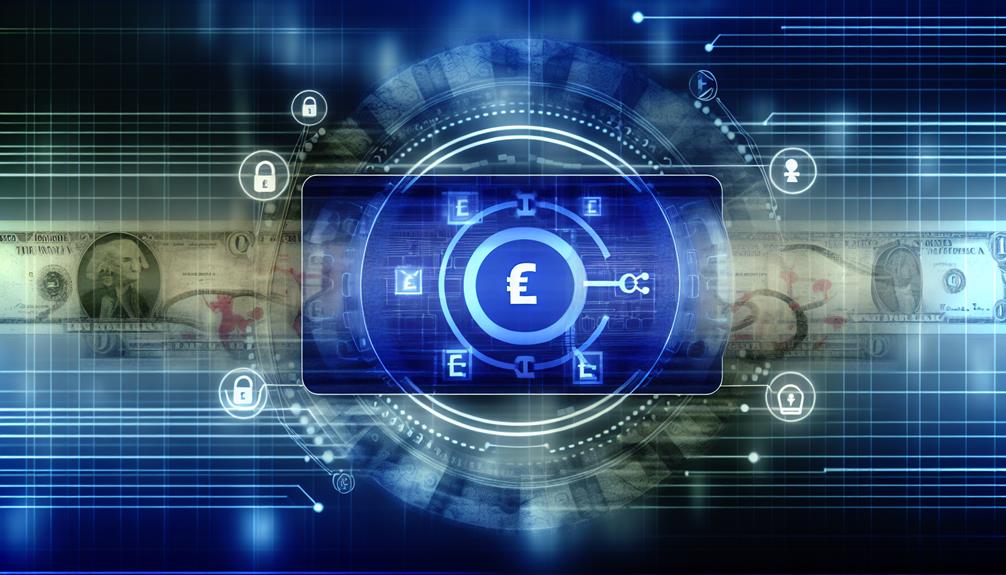
How do you guarantee that your exchange for Monero is trustworthy? Choosing the right platform is vital for confirming both exchange reputation and transaction security. With the increasing popularity of cryptocurrencies, it is important to do your homework before making any trades. Here are four key factors to take into account when selecting a reliable exchange:
- Research Exchange Reputation: Look for reviews and ratings from other users. Platforms with a strong track record of satisfied customers are generally more reliable. Check forums and social media for real customer experiences.
- Evaluate Security Features: A trustworthy exchange should have robust security measures in place, such as two-factor authentication (2FA), cold storage for funds, and regular security audits. These features help safeguard your assets against theft and hacking.
- Regulatory Compliance: Confirm the exchange complies with local regulations and has necessary licenses. This compliance often indicates a commitment to transparency and consumer protection.
- Customer Support: Reliable exchanges should offer responsive customer support. Test their communication channels by reaching out with questions. A quick and helpful response can be a good sign of their commitment to user satisfaction.
Peer-to-Peer Transactions
A popular alternative for exchanging Monero for cash is through peer-to-peer transactions. This method allows you to connect with other individuals directly, bypassing traditional exchanges and financial institutions. One of the most appealing aspects of peer-to-peer transactions is the enhanced privacy features that Monero offers. Unlike many cryptocurrencies, Monero prioritizes user anonymity, making it challenging to trace transactions back to the parties involved.
When you engage in a peer-to-peer transaction, you're likely to find various platforms that facilitate these exchanges. These platforms often provide a marketplace where buyers and sellers can negotiate terms, including the mode of payment. Cash transactions are common, as they enable immediate settlement, which can be advantageous for both parties. However, it is crucial to conduct these transactions with caution. Always verify the credibility of the individual on the other end to guarantee your transaction security.
While the privacy features of Monero are significant, they also come with responsibilities. You must be aware of the legal implications of cash transactions in your jurisdiction, as regulations can vary widely. Peer-to-peer transactions can be efficient, but they require due diligence on your part. Make certain you're using secure methods to communicate and transfer funds. By taking these precautions, you can enjoy the benefits of converting Monero to cash while minimizing risks associated with privacy and security.
Cashing Out Through ATMs
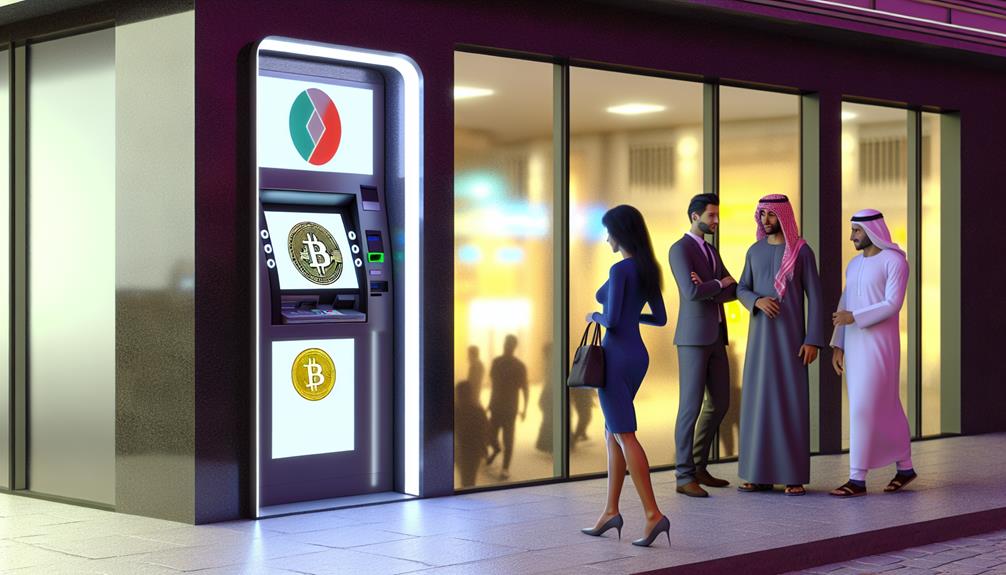
Frequently, individuals looking to cash out their Monero find that using ATMs designed for cryptocurrency transactions can be a convenient option. These ATMs allow for a relatively seamless exchange from Monero to cash, but there are important factors to take into account. Understanding the nuances of using these ATMs can enhance your overall user experience.
Here are four key points to keep in mind:
- Monero Privacy: Monero's focus on privacy can complicate transactions at ATMs. Confirm the ATM you're using supports Monero and respects its privacy features.
- ATM Fees: Be prepared for potentially high ATM fees. These fees can vary greatly between different machines, so it's wise to check beforehand to avoid unpleasant surprises.
- Security Concerns: While ATMs can be convenient, security concerns still exist. Make sure to use machines located in safe areas, and always be aware of your surroundings while conducting transactions.
- Conversion Limits: Many ATMs impose daily or transaction limits on how much Monero you can convert to cash. Familiarize yourself with these limits to plan your cashing-out strategy effectively.
Legal Considerations and Taxes
When you convert Monero to cash, it's essential to understand the tax implications involved. You'll need to comply with legal requirements to avoid potential penalties or issues with tax authorities. Being informed about these considerations can help you navigate the process more effectively.
Tax Implications Overview
Maneuvering the tax implications of converting Monero to cash involves understanding both legal considerations and the specifics of tax liability. When you engage in this conversion, you need to be aware of your tax obligations and reporting requirements. Here are some key points to reflect on:
- Capital Gains Tax: If you sell Monero for more than you paid, you'll likely owe capital gains tax on the profit.
- Income Tax: If you receive Monero as payment for services, it's treated as income, subject to income tax.
- Record Keeping: Maintain detailed records of your transactions, including dates, amounts, and the value of Monero at the time of conversion, to guarantee accurate reporting.
- Filing Requirements: You'll need to report any gains or income on your tax return, typically using specific forms for cryptocurrency transactions.
Understanding these elements can help you navigate your financial responsibilities more effectively. Neglecting to comply with tax obligations could lead to penalties, so it's essential to stay informed and consult with a tax professional if needed.
Legal Compliance Requirements
Legal compliance is vital when converting Monero to cash, as it guarantees you adhere to both local and federal regulations. When engaging in these transactions, you'll encounter various KYC regulations and AML policies that aim to prevent illicit activities. It's important to acknowledge privacy concerns that may arise due to the nature of Monero, which is designed for anonymity.
You might face compliance challenges based on jurisdiction variations. Each jurisdiction has its own legal frameworks, which can affect your reporting obligations and transaction limits. Staying informed about regulatory updates is essential to avoid penalties.
Here's a summary of key considerations:
| Aspect | Description | Importance |
|---|---|---|
| KYC Regulations | Know Your Customer requirements | Prevents fraud |
| AML Policies | Anti-Money Laundering measures | Guarantees legality |
| Transaction Limits | Maximum amount allowed per transaction | Controls risk |
| Reporting Obligations | Necessary documentation for tax purposes | Maintains transparency |
| Cash Alternatives | Other methods to liquidate Monero | Diversifies options |
Understanding these factors will help you navigate the complexities of converting Monero to cash effectively.
Tips for a Smooth Transaction
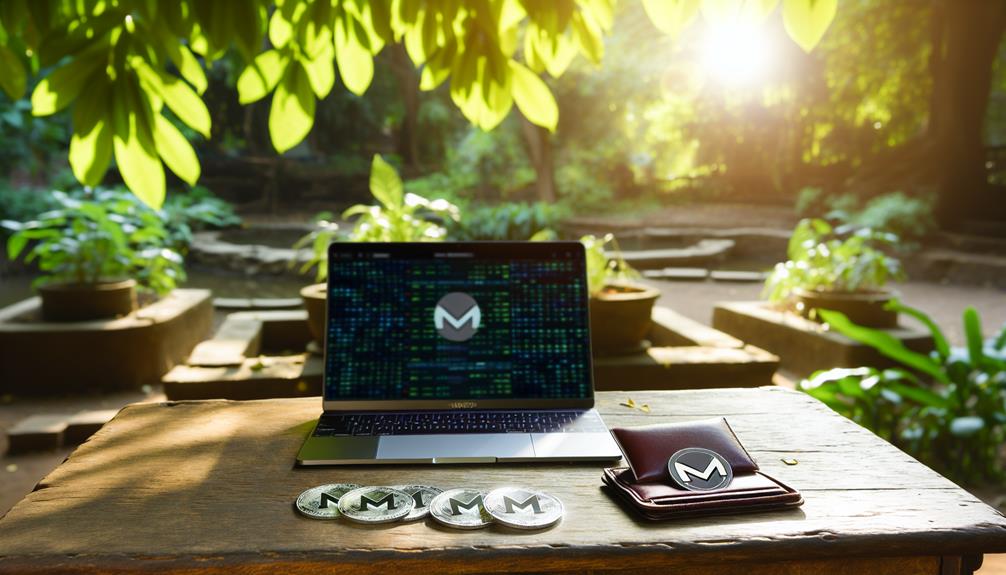
Maneuvering the process of exchanging Monero for cash can be streamlined with a few practical tips. Whether you're new to cryptocurrency or a seasoned trader, following these guidelines can help minimize transaction fees and enhance wallet security.
- Choose a Reputable Exchange: Select a platform known for its security and reliability. Research user reviews and confirm the exchange complies with regulations. This reduces the risk of fraud and unexpected fees.
- Verify Wallet Security: Before initiating a transaction, double-check that your Monero wallet is secure. Enable two-factor authentication and keep your private keys safe. A compromised wallet can lead to significant losses, so prioritize security.
- Understand Transaction Fees: Be aware of the fees associated with converting Monero to cash. Different exchanges have varying fee structures. Compare these fees to maximize your returns and avoid unnecessary costs.
- Consider Peer-to-Peer Options: If you're looking for potentially lower fees, consider peer-to-peer platforms. These allow you to trade directly with other users, but confirm you take precautions to verify the counterpart's credibility.
Frequently Asked Questions
Is It Safe to Convert Monero to Cash Anonymously?
When converting Monero to cash anonymously, you should consider privacy concerns and the transaction methods available. While Monero offers enhanced privacy, the conversion process can still expose you to potential risks. Stay informed and cautious.
What Are the Fees Associated With Cashing Out Monero?
Cashing out Monero could feel like steering through a maze! Fees vary drastically between transaction methods and exchange platforms. You might encounter percentages, flat fees, or even hidden costs, so always read the fine print carefully!
How Long Does It Take to Convert Monero to Cash?
When converting Monero to cash, processing times vary based on exchange options. Typically, it can take anywhere from a few minutes to several days, depending on the platform's efficiency and the withdrawal method you choose.
Can I Convert Monero to Cash Without a Bank Account?
Yes, you can convert Monero to cash without a bank account by using peer-to-peer transactions or specialized Monero exchanges. These methods allow you to exchange your cryptocurrency directly with other users, bypassing traditional banking systems.
Are There Limits on How Much Monero I Can Convert?
Yes, there are conversion limits based on exchange policies. Each platform sets its own thresholds for Monero conversions, so you should check their guidelines to understand any restrictions that may apply before proceeding with transactions.
Conclusion
In traversing the world of Monero, think of cash as the golden key opening the door to traditional finance. By utilizing peer-to-peer exchanges or crypto ATMs, you can transform your digital assets into tangible currency. However, just as a gardener tends to their plants, it's essential to nurture your choices with research and compliance. As you begin on this journey, remember that understanding the landscape is important to reaping the benefits while avoiding potential pitfalls.
